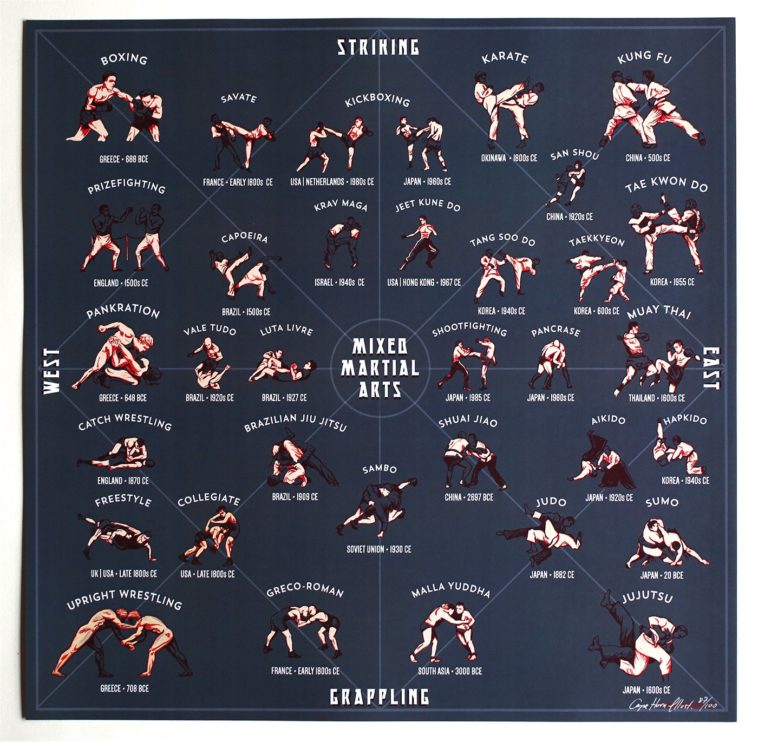The History And Ideology Of Martial Arts: A Deep Dive
The History And Ideology Of Martial Arts: A Deep Dive
Blog Article
Article Produced By-Barber Mcintyre
Enter the old globe where martial arts were substantiated of necessity in diverse regions. Societies crafted distinct fighting styles intertwined with historical contexts. Strategies evolved over centuries via dedicated method and social exchanges. Today, modern martial arts blend typical components for maximum efficiency. Philosophically, martial arts emphasize technique, self-improvement, and consistency. Respect, humbleness, and equilibrium are fundamental concepts directing practitioners in the direction of growth and resilience. Check out visit this backlink of this rich history and approach to reveal the profound impacts forming this enduring discipline.
Beginnings of Martial Arts
Fighting style came from different regions around the world, developing as useful battle systems to prevent threats. These old combating styles were established out of need, with each society crafting techniques fit to their special atmospheres and difficulties. From the grappling arts of Jujutsu in Japan to the striking techniques of Kung Fu in China, martial arts were deeply linked with the historic, social, and cultural fabric of their corresponding societies.
In Japan, the samurai course refined martial arts like Kenjutsu, the art of the sword, which later on developed right into the extra promoted form of Kendo. On martial arts vs taekwondo , in Brazil, Capoeira emerged as a mix of dancing and combat, created by enslaved Africans as a means to resist injustice. Each fighting style carries with it an abundant background and philosophy, reflecting the values and beliefs of the people who practiced them.
As you delve into the beginnings of martial arts, you uncover a tapestry of human ingenuity, durability, and the stubborn spirit of warriors throughout time.
Development of Methods
Via centuries of practice and improvement, combat strategies within numerous martial arts have actually gone through a profound advancement. From old styles like Kung Fu and Martial arts to extra modern-day techniques such as Brazilian Jiu-Jitsu and Krav Maga, the advancement of techniques has been driven by a combination of social influences, useful applications, and technical advancements.
One substantial aspect of this evolution is the cross-pollination of methods between various martial arts. For example, strategies from traditional Japanese Jiu-Jitsu were integrated into the production of Judo by Jigoro Kano in the late 19th century. This mixing of styles has actually led to the development of crossbreed martial arts like Mixed Martial Arts (MMA), which integrate aspects of striking, grappling, and entry strategies.
Furthermore, the advancement of techniques has been formed by the increasing emphasis on efficiency and performance in fight. Practitioners have actually constantly sought to refine their strategies via extensive training, testing, and competitors, bring about the advancement of extremely specialized and effective battling designs. In general, the development of methods in martial arts mirrors the dynamic nature of fight and the ongoing quest for renovation and advancement.
Thoughtful Foundations
Discovering the underlying philosophical concepts of martial arts supplies insight into their core values and directing ideas. At the heart of numerous martial arts techniques is the principle of discipline itself. By training your mind and body to function as one natural system, you cultivate technique that prolongs beyond the dojo or gym into everyday life. This technique includes regard, humbleness, and self-control, forming not just your physical capabilities however likewise your character.
An additional basic thoughtful foundation in martial arts is the concept of continual self-improvement. The trip of grasping a martial art is continuous, with professionals regularly striving to much better themselves, both physically and psychologically. This focus on development cultivates strength, determination, and a development mindset that can be put on all elements of life.
Additionally, martial arts emphasize the significance of consistency and balance. Strategies are developed to use an opponent's energy versus them, highlighting the concept of yielding and rerouting force as opposed to fulfilling it head-on. This viewpoint includes interpersonal connections, advertising tranquil resolutions and good understanding. By accepting these philosophical foundations, martial artists not only boost their combat abilities but also cultivate a way of life fixated personal development, regard, and consistency.
Verdict
In conclusion, the history and approach of martial arts offer a rich tapestry of tradition, self-control, and self-improvement.
Consider instance the story of Bruce Lee, that changed martial arts by blending different designs and viewpoints to develop his own one-of-a-kind kind of Jeet Kune Do.
Via devotion and development, martial artists continue to press borders and influence others to reach their complete possibility both in fight and in life.
